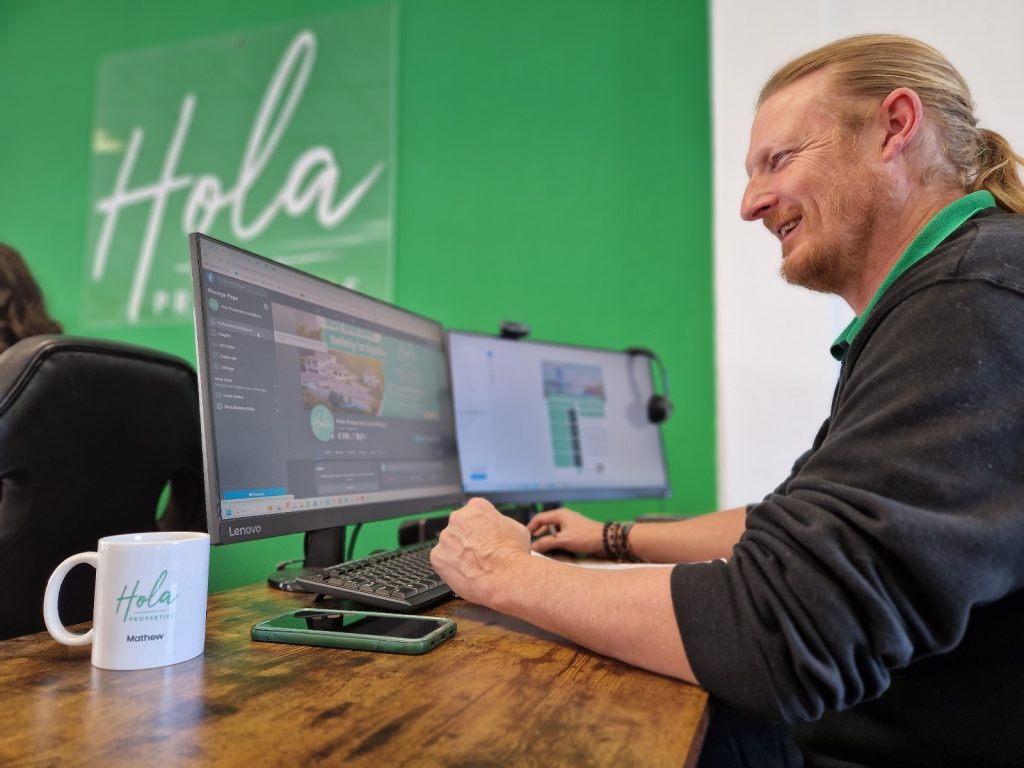Mathew Wood of Hola Properties, based in Lanjarón, discusses the need for local clarity, not social media noise on the Costa Tropical Property Market. He also demystifies that tourist licenses are now transferring with the property, not the person, and how houses with energy rating “E” will NOT be unsaleable after 2030. Get the latest info here….
THERE is a lot of new or updated information occurring in the Granada and Costa Tropical property market at present. Some of the main issues are down to the usual confusion and misrepresentation – so nothing new there! It emphasises the need to consult experienced industry professionals from the start.

In particular, we are seeing on the Costa Tropical Property Market:
- Tourist licence confusion: Court confirms licences belong to the property, not the owner – most town halls are transferring them as usual.
- Market balance: At present, it isn’t either clearly a buyer’s or seller’s market – good listings still sell fast.
- Lawyer warning: Local knowledge matters – some lawyers outside Granada are misreading documents.
- Energy certificate myths: Spain will not ban property sales below an E rating in 2030. But from this coming August, you must have an energy certificate to get a mortgage valuation.
Tourist licenses: a rare win for logic
After months of uncertainty, the High Court has ruled that tourist licences apply to the property, not the person. That means when you sell a holiday rental home, the licence can transfer to the new owner.
Despite mixed messages from the Junta de Andalucía, most town halls across the Costa Tropical are continuing to process transfers smoothly. If you’re selling, this ruling removes one of the biggest sources of confusion in recent months.
Stock levels and cautious buyers re Costa Tropical Property
There’s still less property available across southern Granada and the Costa Tropical than in previous years. That keeps prices steady, but buyers are being cautious.
Agents are seeing more “browsers” — people who enquire but don’t commit. Yet, well-priced homes with strong marketing and good visuals are still selling quickly.
For sellers, this makes preparation critical. A professional video, verified paperwork, and realistic pricing based on data-driven comparables are what separate listings that move from those that linger.
Why your choice of lawyer can make or break a sale
Not all lawyers are equal — especially when it comes to rural and older properties. There are known cases where out-of-area lawyers have charged clients for unnecessary work – such as an extra AFO certificate that already existed.
This isn’t about kickbacks — it’s about local expertise. A lawyer familiar with Granada’s rural property legislation knows how to read a nota simple properly and spot issues before they derail a sale!
The 2030 energy certificate myth
A wave of misinformation has spread online claiming that, from 2030, properties with an energy rating below “E” can’t be sold or rented. That has proved, in the end, to be false.
Spain has agreed to improve efficiency by 2050, but there’s no ban on selling homes below an E rating.
However, from 12 August 2025, an energy certificate is mandatory for any bank valuation tied to a mortgage. If you don’t have one, your buyer can’t proceed. And remember: it’s been a legal requirement to have a valid certificate before marketing your property — not once you’ve found a buyer.
If your current agent hasn’t asked for one, your property may already be listed illegally.
Real facts, real buyers
If you’re planning to sell this winter, now’s the time to get your paperwork checked and your marketing ready. Real buyers are still active — but they’re choosing properties that are compliant, verified, and well-presented..
To see the full video on the topics discussed in this article, click here.

